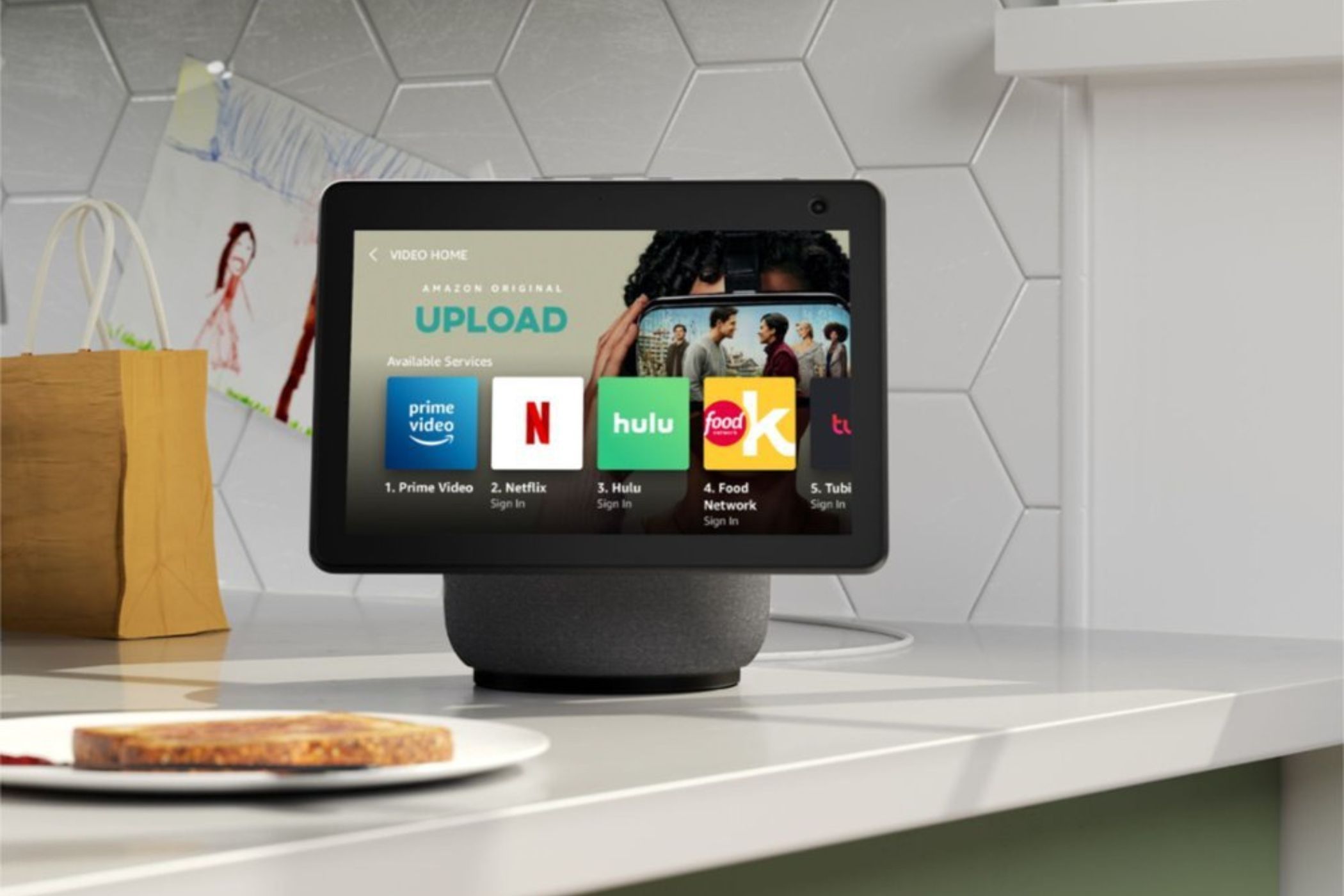
Understanding The Importance of A Central Hub in Managing Your Smart Home Ecosystem

Understanding The Importance of A Central Hub in Managing Your Smart Home Ecosystem
Quick Links
- A Hub Condenses the Smart Home Ecosystem
- A Hub Simplifies Home Automation
- You Can Build an Off-Line Smart Home
- Hubs Do More Than Control Your Home
- Not Every Smart Device Is Matter-Enabled
- Hubs Limit Wi-Fi Clutter
- Matter Is not Bluetooth-compatible
Do you or don’t you need a smart home hub? With the introduction of the semi-universal Matter protocol , many may say no. However, there’s still plenty a smart hub can do for you that may warrant integrating one into your automated home.
If you’re unfamiliar with smart home automation terminology, a smart home hub is a centralized device , either with or without a screen, that can connect to different smart gadgets, like lightbulbs, doorbell cameras, thermostats, and security systems. There are many hubs available , each offering differing degrees of compatibility with specific brands and connection methods. Here’s why they’re still worth getting.
1 A Hub Condenses the Smart Home Ecosystem
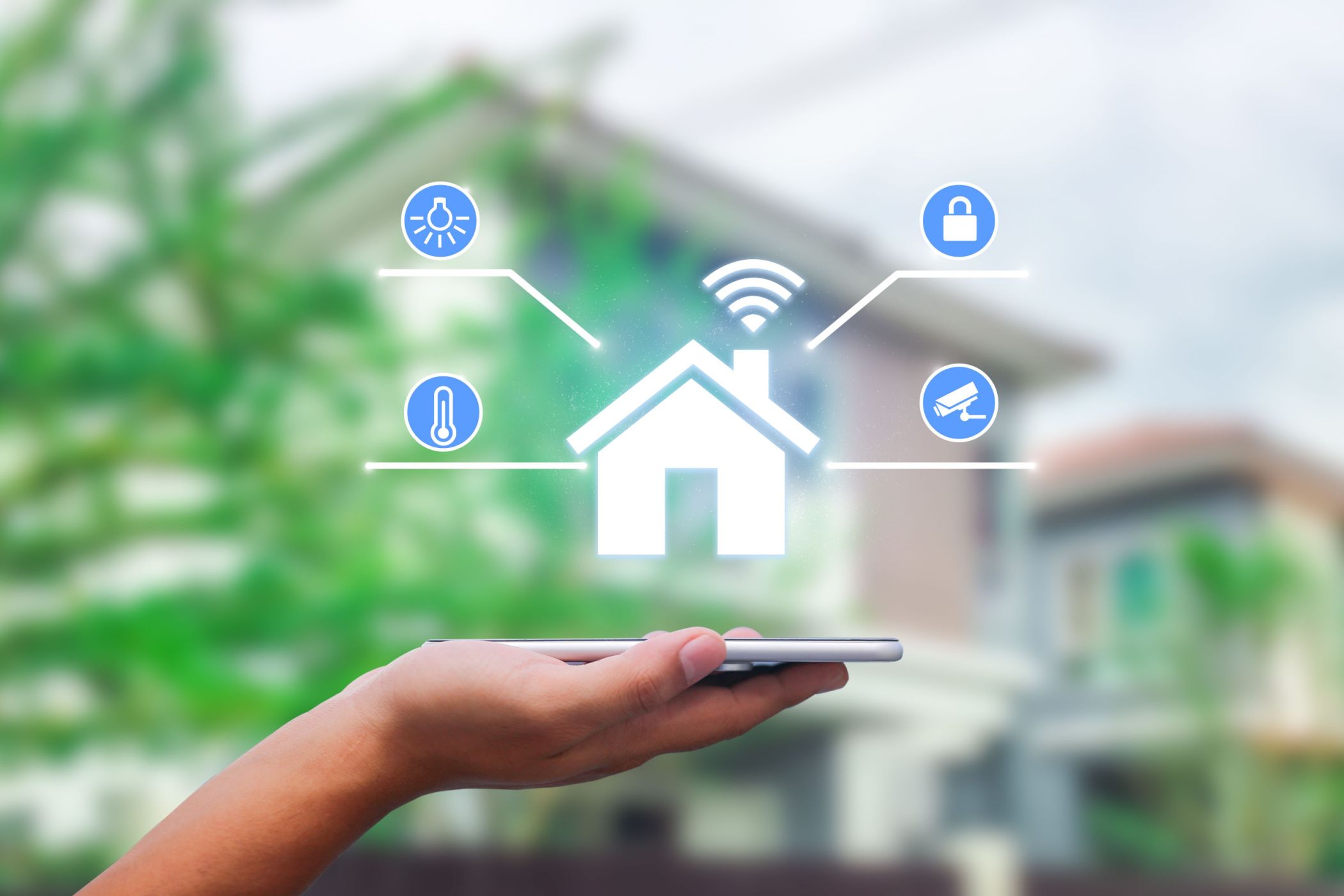
panuwat phimpha/Shutterstock.com
In the earlier days of smart home automation, a new device from a different brand guaranteed you would have to download a separate app. Before you knew it, you clogged your phone with apps like Philips Hue, Hive, Sengled, and Resideo to control many gadgets. One way a hub simplifies your smart home is by condensing all those apps into one convenient, centralized location.
While you may lose some device functionality that’s only available via the dedicated app, a smart home hub can manage the basic features of each gadget. For example, you can turn your Philips Hue bulbs on or check your Ring doorbell directly from an Alexa Echo Hub without ever needing the Philips Hue and Ring apps on your phone.
Even if you don’t have immediate access to the physical hub, the associated app, like Amazon Alexa, will still let you control these devices without requiring their specific app.

Amazon Echo Hub
Amazon’s Echo Hub is a centralized unit designed to help you take complete control over your whole-home automation. Connect to brands like Philips, Sengled, Govee, and Ring to manage individual apps, set scenes, or schedule device activation. The Echo Hub features an 8” touchscreen that serves as the control panel to your smart home.
2 A Hub Simplifies Home Automation
What if you want your Govee Aura Lamp to turn on whenever you open the garage door? So long as your garage door can connect to the same hub as the bulb, which the Tailwind iQ3 likely can thanks to its near-universal compatibility, you’ll be able to create a scene that starts with a triggering event.
This level of automation is ideal for enhancing your home security, especially if you have motion sensors that can trigger cameras and lighting. Amazon’s hub and the Alexa app have more than 10 triggers, including a specific time, voice activation, sound detection, if a connected vehicle’s engine starts, or if the hub detects a particular sound.
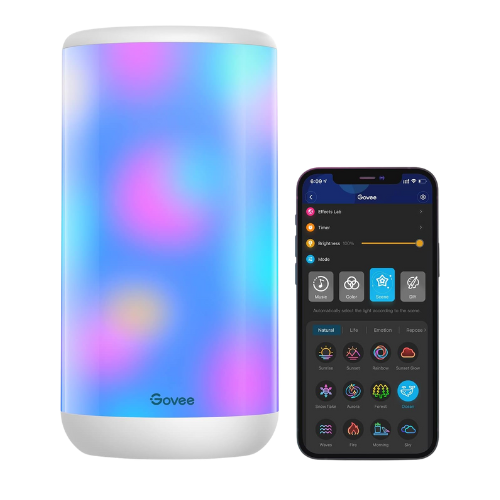
Govee Aura Lamp
8/ 10
Blend ambient lighting with music with Govee’s RGBIC Aura Lamp table lamp. The vibrant colors can bring 43 unique scenes to life while your favorite songs sync to set the mood. Dimmable and fully customizable, the table lamp is brimming with personality.
3 You Can Build an Off-Line Smart Home
With many smart home setups, if the Wi-Fi goes out in your home, you won’t have access to your devices. Even if you can still connect to your cellular network and open the device’s app, it won’t be able to communicate with the smart device. For example, without Wi-Fi, you wouldn’t be able to adjust your home’s climate using your phone with Honeywell’s Home T9 Wi-Fi Smart Thermostat .
Some hubs, like the Homey Pro , can connect to smart devices in a variety of ways, including a wireless connection known as Zigbee. The latter uses radio signals to link to devices, so they’ll still work even if your Wi-Fi doesn’t. Wi-Fi and Bluetooth-compatible devices are a little easier to find, but ecosystems like Philips Hue, Bosch, Ikea, and SmartThings can connect via Zigbee and work without the internet.
Z-Wave is an alternate protocol similar to Zigbee that uses radio-wave frequencies to communicate with smart gadgets. Regardless of which you use, they’re a reliable means of having an off-the-grid smart home.
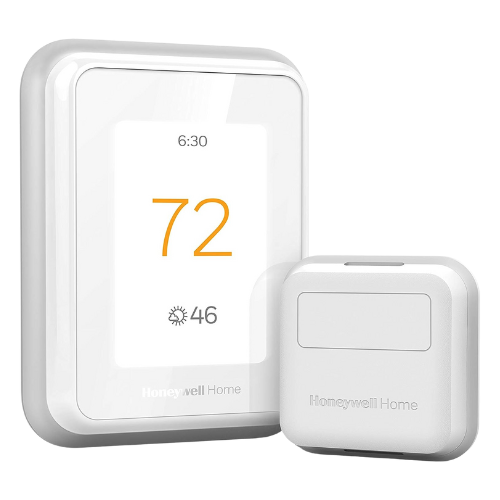
Honeywell Home T9 Smart Thermostat
Honeywell’s Home T9 thermostat gives you full control of your home’s climate, allowing you to adjust temperatures no matter where you are. Schedule air conditioning and heat for when you’re not home to ensure you return to a comfortable environment that fits the season.
4 Hubs Do More Than Control Your Home
A smart home hub is designed to make your home smarter and automate specific processes. It can also be a great way to set the mood or energize a party. Not only can you control lighting and set the temperature, but you can also link your favorite music app, like Spotify or Pandora, and enjoy some entertainment. Smart home hubs like Amazon’s Echo Hub can double as a DJ, read you the latest audiobooks, and keep you updated with your favorite podcasts.
A hub like the Echo can also tap into skills to set up news alerts, play Jeopardy, answer basic questions, or even make a to-do list. Similar features are also available on the Google Nest, Apple HomePod, and other smart hubs.
5 Not Every Smart Device Is Matter-Enabled
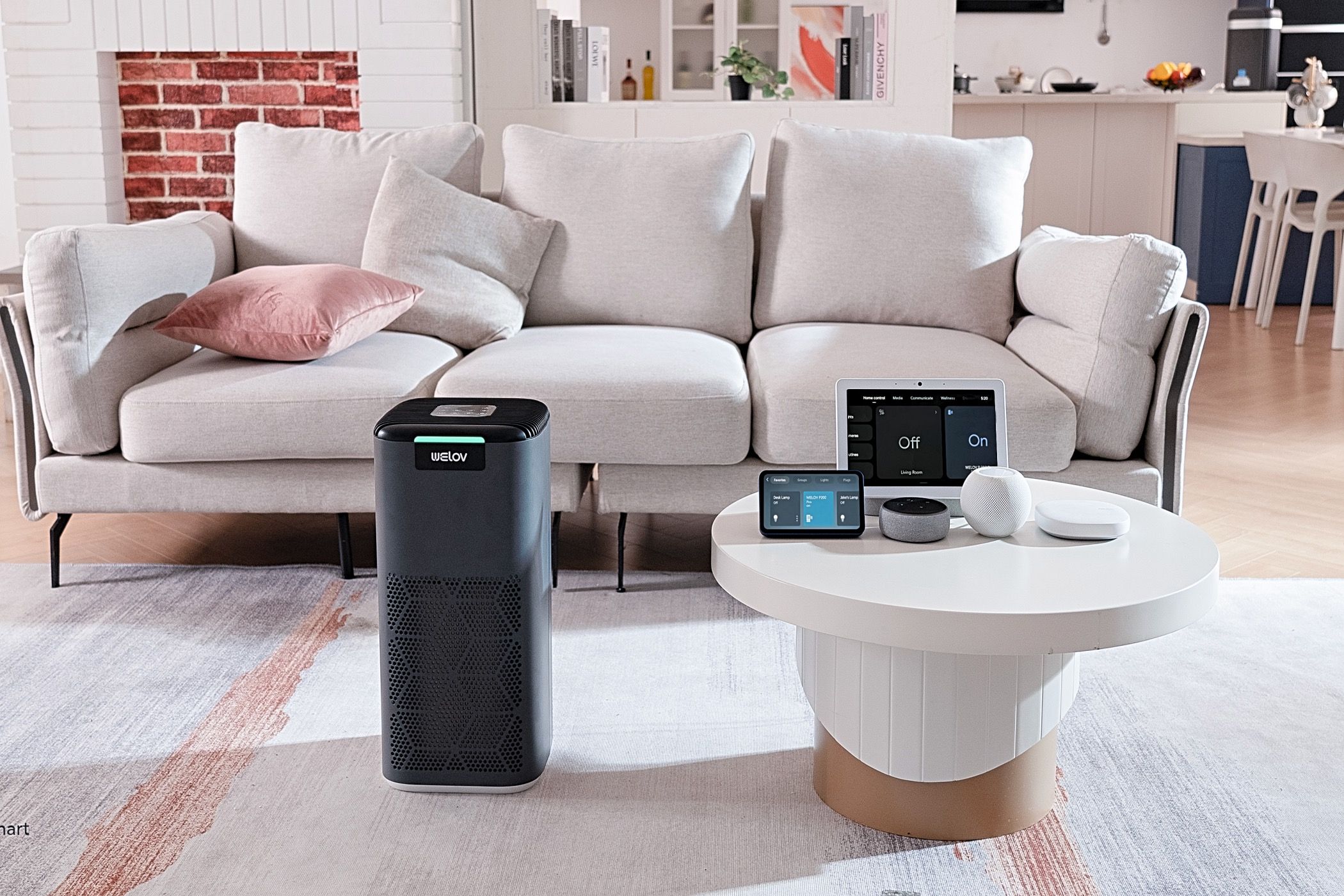
AiDot
As we mentioned earlier, Matter is a near-universal protocol that allows devices to connect to one another regardless of the ecosystem they belong to. Matter acts like a wireless network for all your Matter-enabled devices to connect to, similar to a Wi-Fi signal. However, as noted, Matter isn’t fully universal, so some devices still can’t connect to its network. Z-Wave and Zigbee devices, for example, aren’t Matter compatible.
A smart home hub can bridge the gap between devices that are both compatible and incompatible with Matter. It makes shopping for smart gadgets easier, as you don’t have to reserve yourself to specific brands solely because they’re Matter-enabled. You can mix and match Matter gadgets with Wi-Fi or Bluetooth-only devices with a hub.
6 Hubs Limit Wi-Fi Clutter
![]()
Lucas Gouveia / How-To Geek | Hadrian / Shutterstock
One thing your local internet service provider (ISP) didn’t warn you about when you first signed up is that there is such a thing as too many devices. If you have too many devices, smart or otherwise, connected and active on your network, connection speeds and quality can diminish.
A hub cuts this burden down by redirecting every smart gadget’s connection to its signal. Rather than seeing a dozen working devices on your network, you’ll see only the hub (and any unrelated devices like gaming consoles or smartphones). Unfortunately, this means if the hub malfunctions, you’ll lose access to all of the connect smart devices.
7 Matter Is not Bluetooth-compatible

Justin Duino / How-To Geek
Sticking to the subject of Matter, the local network is not compatible with Bluetooth devices. These devices aren’t incredibly popular, as most focus on Wi-Fi, Zigbee, and Z-Wave connections. However, they’re out there, and if you’re looking to connect them in one convenient location without several different apps, a hub is a good alternative.
Sengled smart bulbs and lesser-known brands like Smonet tend to be Bluetooth only. So, if you want your Sengled lightbulb to turn on when your Smonet Smart Deadbolt is activated, you’ll want a hub that brings both devices into one ecosystem to link for a routine.
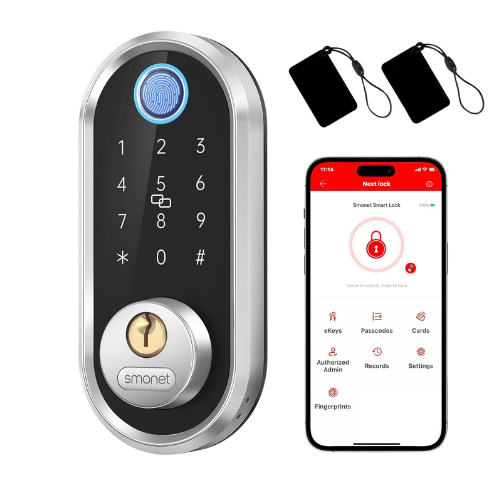
Smonet Smart Deadbolt
Smonet’s Smart Deadbolt gives you peace of mind knowing that you can check on your door lock at any time using the designated app. Set passcodes and eKeys, activate fingerprint entry, and more with this smart deadbolt door lock.
Also read:
- [New] In 2024, Editor's Compendium Top Devices Transforming Media Projects
- [New] Unveiling Premium-Priced, No-Cost Graphic Websites for 2024
- [New] Video Setup Made Simple Your Step-by-Step Logitech Guide for 2024
- [Updated] 2024 Approved Harness YouTube Movie Maker for Impactful Videos
- Boost Your Device's Speed with This All-in-One Fast Charger and USB/HDMI Hub - Latest Review by ZDNet
- Experience Enduring Performance & Stunning Visuals with One of the Most Durable Laptops Reviewed on ZDNet
- From Traditional to Split: Transforming Productivity in a Week Using an Ergonomic Keyboard | Featured
- In 2024, Mastering Quick Retrieval of Hidden Reddit Threads
- Solving the 'No Matches Found' Dilemma: Strategies for Successful Bumble Swiping
- Top Walmart Savings in July 2024: Exclusive Offers Spotted by ZDNet
- Ultimate Picks for the Most Innovative Touchpad PCs - Industry Insights & Comparisons | Digital Trends
- Title: Understanding The Importance of A Central Hub in Managing Your Smart Home Ecosystem
- Author: George
- Created at : 2024-12-23 20:43:16
- Updated at : 2024-12-27 18:46:29
- Link: https://hardware-tips.techidaily.com/understanding-the-importance-of-a-central-hub-in-managing-your-smart-home-ecosystem/
- License: This work is licensed under CC BY-NC-SA 4.0.